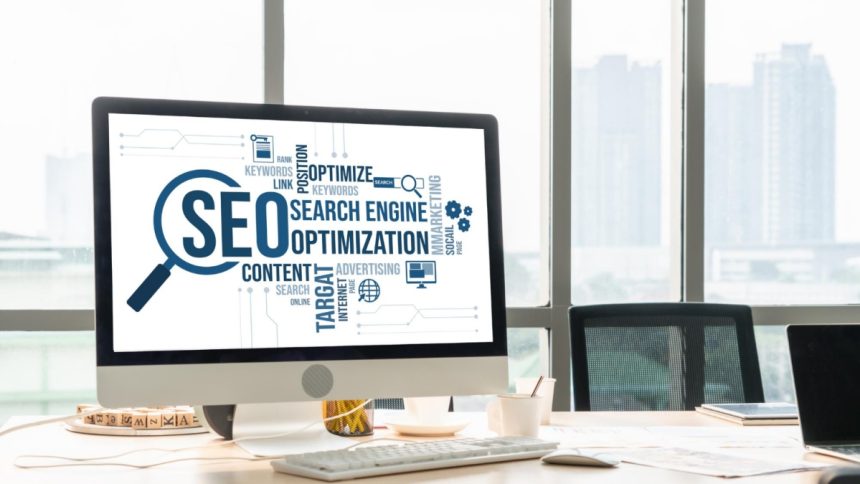Keeping a WordPress website is like running a car; regular servicing means better performance. WordPress is the platform of choice for building and running websites for many. It’s easy to use, flexible and has a huge plugin ecosystem for businesses and individuals. But to really get the most out of WordPress, maintenance is key, especially for Search Engine Optimization (SEO). Let’s get into why WordPress maintenance is important for SEO.
Security
One of the main reasons to do WordPress maintenance is security. WordPress being an open source platform is a target for hackers. Regular updates to the WordPress core, themes and plugins patch security holes and protect your site from threats. A hacked website can suffer big SEO damage. Search engines like Google prioritise user safety and will demote or blacklist sites that are a security risk. So maintaining a secure WordPress site is not just about protecting your data but also your SEO efforts.
Speed Optimization
Website speed is a big SEO factor. Search engines love fast-loading websites because they give a better user experience. Maintenance helps keep your site fast. This includes updating plugins and themes, optimizing databases, and using caching. Over time, websites can accumulate unnecessary data and slow down. Maintenance routines like database cleaning and image optimization can keep your site running smoothly. Faster sites get higher search engine rankings and more organic traffic. Major site changes should be reviewed by your WordPress developer for site speed concerns.
Fixing Broken Links
Broken links are bad for user experience and SEO. They annoy visitors and tell search engines your site is not well maintained. Regularly checking and fixing broken links means users and search engine crawlers can navigate your site smoothly. Tools and plugins can help you find and fix broken links, so this is part of your WordPress maintenance routine. A well-maintained site with working links keeps users and keeps you in the search engine rankings.
Updating Content
SEO is not a set it and forget it strategy; it’s ongoing. Updating your content is part of WordPress maintenance that can greatly impact SEO. Search engines love fresh and relevant content. Regular updates tell search engines your site is active and current. This can lead to higher rankings and more visibility. Maintenance activities like updating old blog posts, adding new information and ensuring all content is up to date will keep your content relevant and engaging for users and search engines.
User Experience
User experience (UX) is a big SEO factor. Search engines want to give users the best results possible and favour sites that provide a good UX. WordPress maintenance helps with UX by making sure all site elements work. This includes checking and fixing issues like broken forms, malfunctioning buttons, and layout inconsistencies. A good UX means longer site visits, lower bounce rates, and higher engagement—all good for SEO.
Mobile Optimization
With more and more people browsing on mobile, mobile optimization is now a big SEO factor. Google and other search engines rank mobile-friendly sites higher. WordPress maintenance helps keep your site responsive and working on all devices. This means checking mobile compatibility, adjusting layouts and ensuring all elements are accessible on smaller screens. A mobile-optimised site gives a better user experience and SEO and more traffic to your site.
Plugins and Themes
Plugins and themes are part of what makes WordPress work and look. But outdated or incompatible plugins and themes can cause conflicts, slow down your site and create security holes. Updating and auditing your plugins and themes is part of WordPress maintenance. This means all parts of your site work together and give a smooth experience for users and search engines. Removing unused plugins and themes also reduces the risk of conflicts and site performance.
WordPress has many SEO plugins like Yoast SEO and All in One SEO Pack to help you optimise your site for search engines. Updating these plugins regularly means you can get new features and improvements. SEO plugins often update to keep up with the latest search engine algorithms and best practices. By keeping your SEO plugins up to date you ensure your site complies with current SEO standards and gives you an edge in the digital landscape.
Backups
Backups are part of WordPress maintenance. If something goes wrong like a site crash or hacking attempt having a recent backup means you can get your site back up and running quickly. Backups themselves don’t impact SEO but the ability to recover quickly from setbacks means your site stays live and functional and doesn’t go down for extended periods that can harm your SEO rankings.
Analytics
Reviewing your website analytics regularly is part of WordPress maintenance. Tools like Google Analytics and Google Search Console give you insights into your site’s performance, user behavior, and potential issues. By monitoring these analytics you can identify and fix problems quickly and your site will continue to rank well in search engines. Analytics data helps you make informed decisions about content updates, keyword strategies and other SEO activities.
WordPress maintenance is an ongoing process that requires attention and consistency. By putting in the time and effort you’ll keep your site secure, fast and user friendly. This means better user experience and better SEO progress and better search engine rankings and more organic traffic. In the digital landscape that’s always changing staying on top of WordPress maintenance is key to long term SEO success.
Lynn Martelli is an editor at Readability. She received her MFA in Creative Writing from Antioch University and has worked as an editor for over 10 years. Lynn has edited a wide variety of books, including fiction, non-fiction, memoirs, and more. In her free time, Lynn enjoys reading, writing, and spending time with her family and friends.















